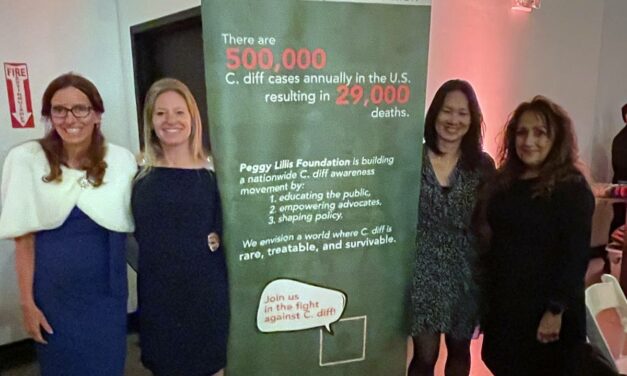CRS3123
for C. difficile Infection
Clinical stage program targeting Clostridioides (Clostridium) difficile Infection (C. difficile infection), a devastating GI-tract infection with suboptimal therapies.
Browse
Overview
Browse
Ongoing Studies
Browse
Presentations
Browse
News / Updates
CRS3123 for C. difficile Overview
Clostridium difficile infection (CDI) is a gastrointestinal condition caused by toxin-producing strains of C. difficile bacteria. CDI symptoms range from severe diarrhea to toxic megacolon. C. difficile forms spores that are very difficult to eliminate from the hospital environment, leading to infection of hospitalized patients. Emergence of hypervirulent and drug-resistant strains of C. diff has resulted in an alarming increase in incidence and mortality of CDI in the past 15 years, especially among elderly patients. C. difficile is found in abundance in the environment, so exposure to this resilient, spore-forming pathogen can be presumed to be both continuous and unavoidable. Under normal circumstances, healthy gut microbiota keeps C. diff growth in check. Disruption of gut microbiota due to exposure to broad spectrum antibiotics or chemotherapy predisposes the patient to CDI. Vancomycin and fidaxomicin are the only approved antibiotics for C. diff treatment. Paradoxically, vancomycin is also one of the broad-spectrum antibiotics that is known to induce CDI due to disruption of normal gut microbiota.
Why It Matters
According to the CDC, there are an estimated 223,900 CDI infections per year in the U.S. that require hospitalization and at least 12,800 people die from the disease annually. A key unmet need in the CDI market is C. difficile treatment or prevention of relapse which requires additional antibiotic treatment and often re-hospitalization. Recurrence rates range from 15-30%, and result from reinfection by spores. Recurrence rates in CDI patients treated with vancomycin exceed 20%. Recurrence following fidaxomicin treatment is somewhat lower, with the notable exception of those infected with the recently emerging epidemic strains (BI/NAP1). Those patients suffer recurrence rates above 20% with either vancomycin or fidaxomicin treatment.
About CRS3123
CRS3123 is a small molecule protein synthesis inhibitor that acts on the novel target methionyl-tRNA synthetase (MetRS). CRS3123 has numerous potential advantages over current CDI therapies.
- Highly potent against all clinical isolates of C. difficile;
- Narrow spectrum for C. difficile, which may substantially reduce the disruption of normal intestinal microbiota compared to current therapies;
- Inhibition of toxin production, potentially leading to lower morbidity and mortality, and faster resolution of symptoms;
- Inhibition of sporulation, potentially leading to lower rates of transmission and recurrence;
- Novel mechanism of action, which means that its use will not compromise the utility of systemic antibiotics (eg. vancomycin).
Ongoing Studies
Phase III studies and other research required for registration and approval are either in planning stages or currently in progress.
CRS3123 Presentations
Crestone Sponsors Peggy Lillis Foundation FIGHT C. DIFF. Gala
Crestone is proud to be a sponsor of the Peggy Lillis Foundation FIGHT C. DIFF. Gala in Brooklyn,...
CRS3123 News / Updates
Crestone Announces Positive Data from Phase 2 Clinical Trial of CRS3123 for C. Difficile Infections (CDI)
Primary endpoint met with high rates of clinical cure at day 12 Very low rates of recurrence...
Become a Part of This Project
Interested in helping further our research into novel antibacterial agents? We’d be thrilled to have your help, either as an investor or a team member.
Inquiries
Have a question or comment? Follow the link below to contact us about general inquiries.
Careers
Find work in a team-oriented environment at one of the leading Colorado pharma companies.
Investors
If you're interested in becoming an investor to help fund our research and development, contact us today.










